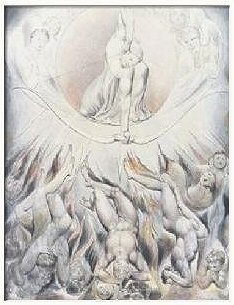
One of the absolute dumbest phrases in the US political lexicon is "taxpayers' money." (Of course not excepting all its synonyms -- hot-button catchphrases like "my hard-earned tax dollars" and such.)
Why dumb?
Let me begin by agreeing that yes, it is
literally true that money paid to and ultimately spent by the government (local, state, federal) in the form of taxes indeed does come from the pockets of taxpayers (and other sources). So in that very narrow sense, yes, it is "taxpayers' money." It's also true that a violation of
public trust is qualitatively different from one of
private trust.
The dumbness lies not in the phrase itself, nor in the special nature of the social contract between taxpayers and public servants, but in the implication that "taxpayers' money" is somehow different from
consumers' money.
All other things being equal, do you howl savagely when (say) the manufacturer of your computer, television set, combination lock, automobile, sneakers, whatever -- when that manufacturer spends $1 more for some product component this year than they did last year... and then passes the cost on to you? Do you write letters to the editor about the scandal, establish lobbying groups of like-minded consumers united in outrage, pontificate on radio call-in shows about how the bums are ill-using you? Do you go over corporate budgets with a fine-tooth comb, circling in gleeful red every expense that might have been shaved, or cut out altogether? Perhaps you do, in which case I owe you an apology. But odds are you do not. Yet for some reason it seems not only proper but nearly obligatory to holler about how much is spent every year on government -- on public
works, however you want to define that term.
So let's hear it for the American Society of Civil Engineers. Granted, they have a vested interest in public spending. But it's still an unpopular stance to embrace openly. That's why their
recent study is notable, pointing out as it does that thanks to cavalier American attitudes about the roads, bridges, wastewater facilities, and other components of the public infrastructure, it will take an estimated $1.6
trillion, spread out over five years, to bring that infrastructure up to snuff.
A good portion of this money is already allocated to existing budgets, true. On the other hand, "existing budgets" are one area most likely to be raided as political expediency demands that Peter needs money this year and the hell with Paul, or vice-versa. Furthermore, the $1.6 trillion figure assumes that the US population will remain unchanged over that period. (Yeah, right.)
(All of this is in the news now, unsurprisingly, following the rush-hour collapse of the bridge in Minneapolis a couple weeks ago.)
As a
New York Times article recently noted:
Finding money to maintain infrastructure has become increasingly difficult as public officials keep pledges not to raise taxes, said Robert Dunphy, a senior resident fellow at the Urban Land Institute. "We have an impending crisis with infrastructure, but it is easy to ignore until you have a catastrophe."
Highways buckling and potholing; railways springing out of alignment like paper clips under stress; busted street lights, bullet-holed stop signs, and yes, the collapse of bridges: catastrophes all, at one level or another. The scary thing to me is that these are just the most visible catastrophes -- that our
social infrastructure is being held together by tape and staples and rubber bands. The money for replacing all of it comes from taxes, duh.
Labels: infrastructure, politics, public vs private, taxes


